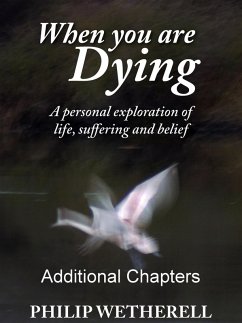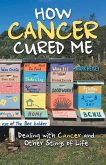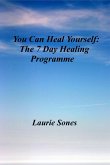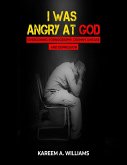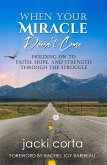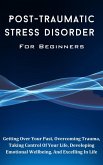I believe this to be a very significant book. It is a moving yet unsentimental account of the last few months in the life of a man, Philip Wetherell, who was suddenly diagnosed with Motor Neurone Disease. He died before the book was completed, by which time he was almost totally paralysed and the book was written a single letter at a time with the aid of eye movements and a computer. It was completed by Gaby, Philip's wife, former colleague and latterly his carer.
Philip writes with transparent honesty about life and death, pain and suffering, faith and fear. His priestly ministry had taken Philip through the mission agency he served to many parts of the globe but he and Gaby had also been rooted for some years in an inner city south London parish. All this is part of the mix which helps Philip to reflect, theologically and with humanity, upon his situation. One of the most significant sections is that which describes precisely what it is like to live with a disease which gets progressively more severe. He explains that every miracle of medical technology which aids the sufferer can also be seen as a sign that the situation is becoming worse. Another important section is that on assisted suicide because for Philip of course this was no theoretical issue. He rigorously examines the arguments against this but concludes that he feels that the Church is mistaken in opposing it, although stating that he does not know whether he would have the courage himself to request it. He also records that, from his own situation, he is aware that things can change from day to day partly through the effect of certain drugs.
Towards the end Philip records that he was totally dependent on others and felt unable to give them anything in return, except this book! It is his final gift to those who knew him, loved and admired him, and it is a gift well worth having. Uniquely we have a thoughtful record from inside the mind of a priest and a man approaching death in the most difficult of circumstances.
Everyone will be enriched through reading this book.
+Tom Butler, former Bishop of Southwark
Philip writes with transparent honesty about life and death, pain and suffering, faith and fear. His priestly ministry had taken Philip through the mission agency he served to many parts of the globe but he and Gaby had also been rooted for some years in an inner city south London parish. All this is part of the mix which helps Philip to reflect, theologically and with humanity, upon his situation. One of the most significant sections is that which describes precisely what it is like to live with a disease which gets progressively more severe. He explains that every miracle of medical technology which aids the sufferer can also be seen as a sign that the situation is becoming worse. Another important section is that on assisted suicide because for Philip of course this was no theoretical issue. He rigorously examines the arguments against this but concludes that he feels that the Church is mistaken in opposing it, although stating that he does not know whether he would have the courage himself to request it. He also records that, from his own situation, he is aware that things can change from day to day partly through the effect of certain drugs.
Towards the end Philip records that he was totally dependent on others and felt unable to give them anything in return, except this book! It is his final gift to those who knew him, loved and admired him, and it is a gift well worth having. Uniquely we have a thoughtful record from inside the mind of a priest and a man approaching death in the most difficult of circumstances.
Everyone will be enriched through reading this book.
+Tom Butler, former Bishop of Southwark
Dieser Download kann aus rechtlichen Gründen nur mit Rechnungsadresse in A, B, CY, CZ, D, DK, EW, E, FIN, F, GR, H, IRL, I, LT, L, LR, M, NL, PL, P, R, S, SLO, SK ausgeliefert werden.

